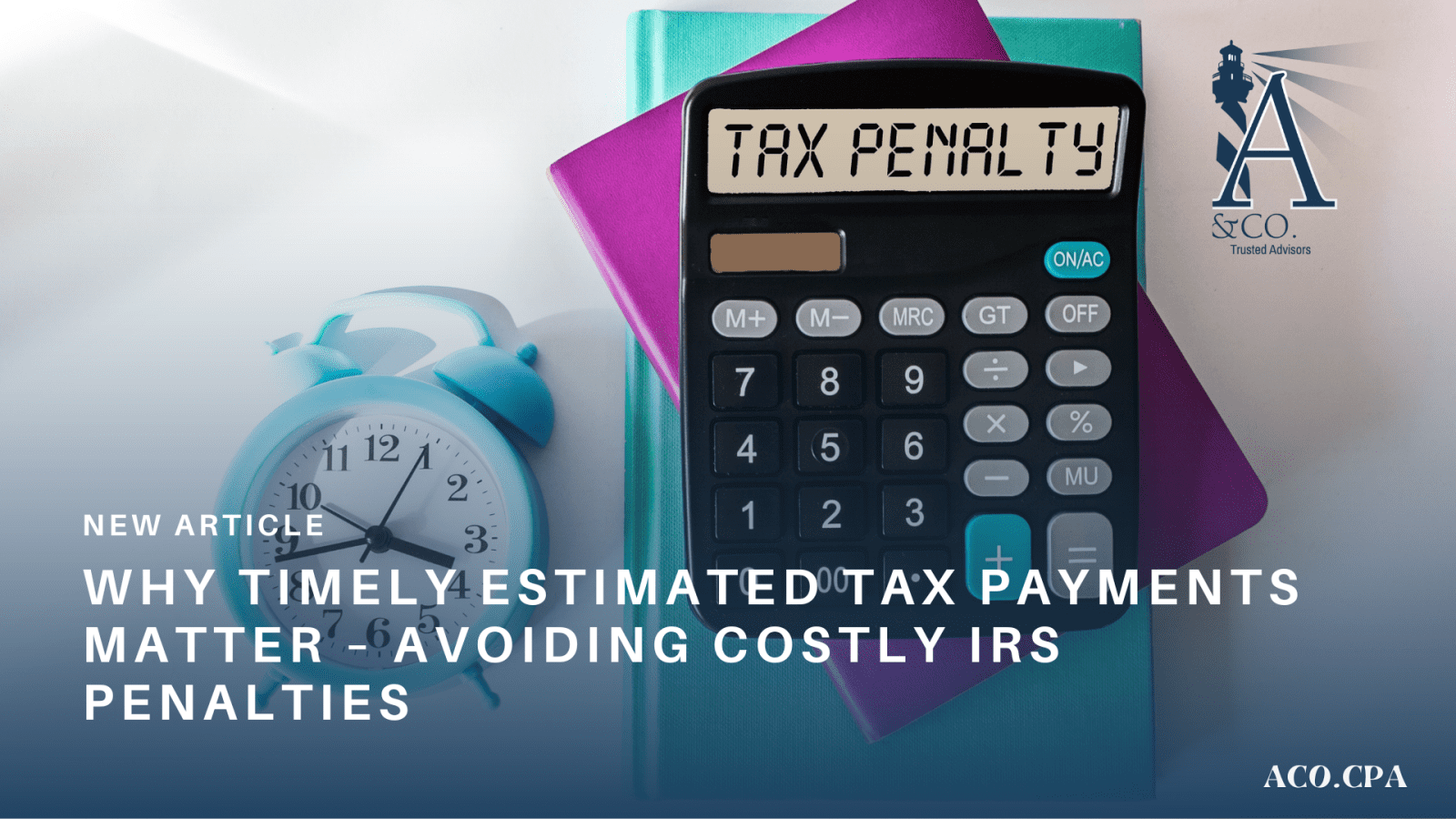As a CPA firm, one of the most common misconceptions we encounter from clients is the idea that as long as their total estimated tax payments are made by the end of the year—or lumped into the fourth quarter—they’re in the clear with the IRS. Unfortunately, that’s not the case.
The IRS Wants Payments When You Earn the Income
Estimated tax payments are designed to match your income throughout the year. The IRS requires these payments to be made in four installments—typically in April, June, September, and January—based on when income is earned. If payments are late or uneven, even if you’ve paid the right total amount by year-end, you may still face underpayment penalties and interest.
Common Pitfall: Front-Loading or Back-Loading Payments
Some taxpayers try to “catch up” by making large payments in Q4. Others might adjust their estimates mid-year based on updated projections. While updating your estimate is smart, shifting payments disproportionately to later quarters doesn’t absolve you of penalties for earlier underpayment.
Penalties and Interest Can Add Up
The IRS calculates underpayment penalties on a quarter-by-quarter basis. If you underpay in one quarter—even if you make up for it later—you could still be assessed a penalty for the period that was underpaid. The interest is compounded and based on IRS rates, which can change quarterly.
How to Stay on Track
Work with your CPA regularly to estimate and adjust your payments based on actual income patterns.
- Stick to the due dates: April 15, June 15, September 15, and January 15 (dates may vary slightly for weekends/holidays).
- Use safe harbor rules if income varies significantly year to year, to avoid penalties even if your estimates aren’t exact.
Bottom Line
Don’t fall into the trap of thinking “paid in full” means “paid on time.” Estimated tax payments need to be timely and accurate. If you’re unsure whether your payment schedule is on track, now’s the time to check in with your CPA. Proactive planning can save you from unnecessary penalties—and an unpleasant surprise come tax season.
Have questions about your estimated payments? Contact our office to schedule a consultation and ensure you’re on the right path. We can be reached at [email protected] or 203-925-9600 for more immediate assistance.



